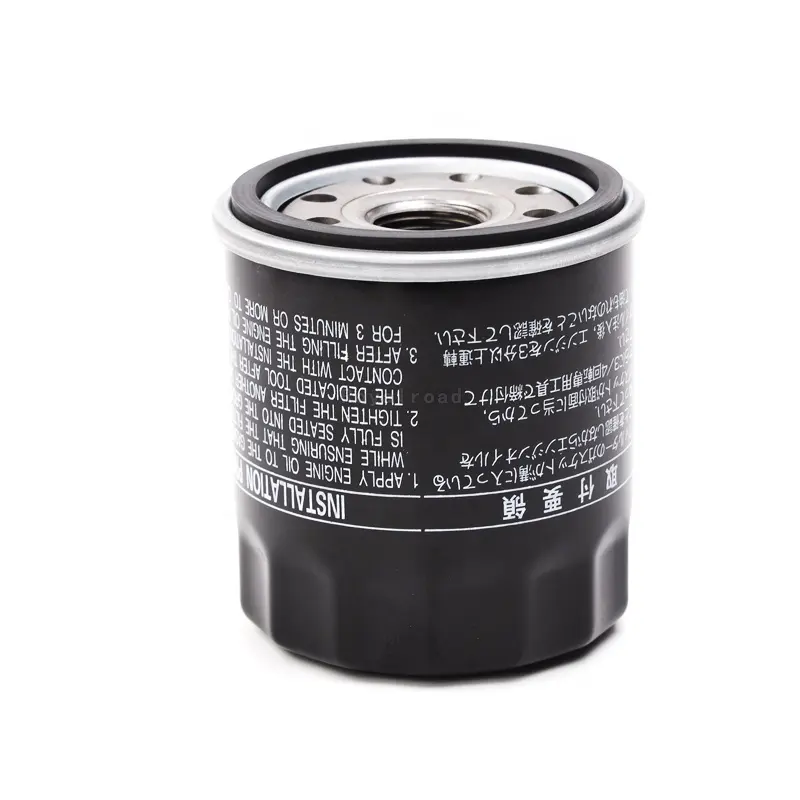Jan . 31, 2024 12:16 Back to list
Signs You Need A Fuel Filter Replacement
Your fuel system is vital in keeping your vehicle moving. Without the delivery of fuel to your engine, your vehicle won’t get very far. Even if a limited amount of fuel reaches your engine, you may notice some odd behavior from your vehicle including shaky idling, poor performance, and difficulty starting your vehicle. One of the most vital parts of your fuel system is the fuel filter. Without your fuel filter, dirt, contaminants, and other gunk could make its way to your engine and cause all sorts of trouble.
WHOLESALE OIL FILTER FOR TOYOTA 90915-YZZE2 OIL FILTER 90915-YZZJ2
The fuel filter is an active participant in delivering clean fuel to the engine while protecting fuel injectors. Just like any filter, it prevents contaminants such as dirt and other particles from entering the engine. Unfortunately, fuel filters can only perform their duty for so long. Made of pleated, porous materials, filters can get clogged over time. This is especially true if you are utilizing lower quality fuels with impurities or sediments have collected in your gas tank. Debris and particles reduce the amount of fuel permitted to pass through the filter. After some time, fuel filters can become clogged and once a full blockage occurs, your vehicle won’t be able to start.
Symptoms of a Failing Fuel Filter
A vehicle requires a certain amount of gas to start and to continue to run. That’s why it’s important to ensure the fuel system is properly maintained, including replacing the fuel filter as necessary. The fuel filter is used every time you start and drive your vehicle. Some clear indications your fuel filter needs to be changed include a decrease in fuel efficiency, a check engine light on, and/or sputtering while accelerating.
- Why is my car slow to start? – This is a sign that the filter is moderately clogged and if not replaced soon, fuel won’t be able to pass through, preventing the vehicle from starting altogether. Fuel pressure, especially in fuel injected engines, cannot function with an obstructed fuel filter. In spite of the fuel’s pressure forcing fuel toward the engine, if the gasoline is thick and chock full of contaminants not filtered, the engine will be starved for fuel, making it difficult to continue the combustion process. This often results in normal cranking but a no-start issue.
- Why does my car shake when idle? – While not in motion, such as at a stoplight, if your vehicle is shaking, it’s likely caused by a blocked filter. When the filter is blocked it prevents the engine from getting the much-needed fuel for the combustion process. Typically a vehicle’s idle RPM functions between 400 – 800 RPM. If it falls below that range, while idling, it may be time to replace your fuel filter.
- Why does my car keep stalling? – An engine that continuously dies while driving, could be a sign of a dirty fuel filter. While the vehicle may start normally, you may notice a shortage of power when driving. Your engine is likely starving for fuel. The more your vehicle stalls, due to blockages in the filter, the less fuel your engine is receiving.
How Often to Replace Fuel Filter
In the past, it was recommended that older vehicles have the fuel filter replaced every 30,000 miles. Modern vehicles, however, may be able to go longer without replacement. So, when should you replace your fuel filter? The best way to determine the state of your vehicle’s fuel filter is by having a fuel pressure test performed. This test determines how much PSI the fuel pump is producing at the fuel rail (the high-pressure tubing used to transport fuel to the injectors.) Normal pressure ranges between 30 – 60 PSI, if the pressure is lower than normal, a technician may first recommend replacing the fuel filter.
Take It To an Expert
While in older vehicles the fuel filter may have been easy to replace by the DIY-er, on many modern vehicles, it is a little more challenging as the fuel filter is located inside the gas tank. Because systems today are a bit more complicated, you need a qualified technician that is certified to perform services on your fuel system. Sun Devil Auto’s Technicians are accomplished experts in their field. When your vehicle needs a fuel system service, schedule an appointment with Sun Devil Auto.
-
High-Quality Fuel Filter for Cars – Durable, Efficient Spin On Fuel Oil Filter
NewsJul.25,2025
-
China Cabin Filter Supplier – Premium Auto Air & Oil Filters Exporter
NewsJul.24,2025
-
Premium Antiskid Tire for Safe Driving & High Performance Filters
NewsJul.23,2025
-
Premium Antiskid Tire for Safe Driving & OEM Air Filter Solutions
NewsJul.22,2025
-
Premium Spin-On & Aluminum Fuel Filters for Car Care
NewsJul.21,2025
-
Antiskid Tires - Superior Wet Traction & Durable Safety | Buy Online Now
NewsJul.21,2025



